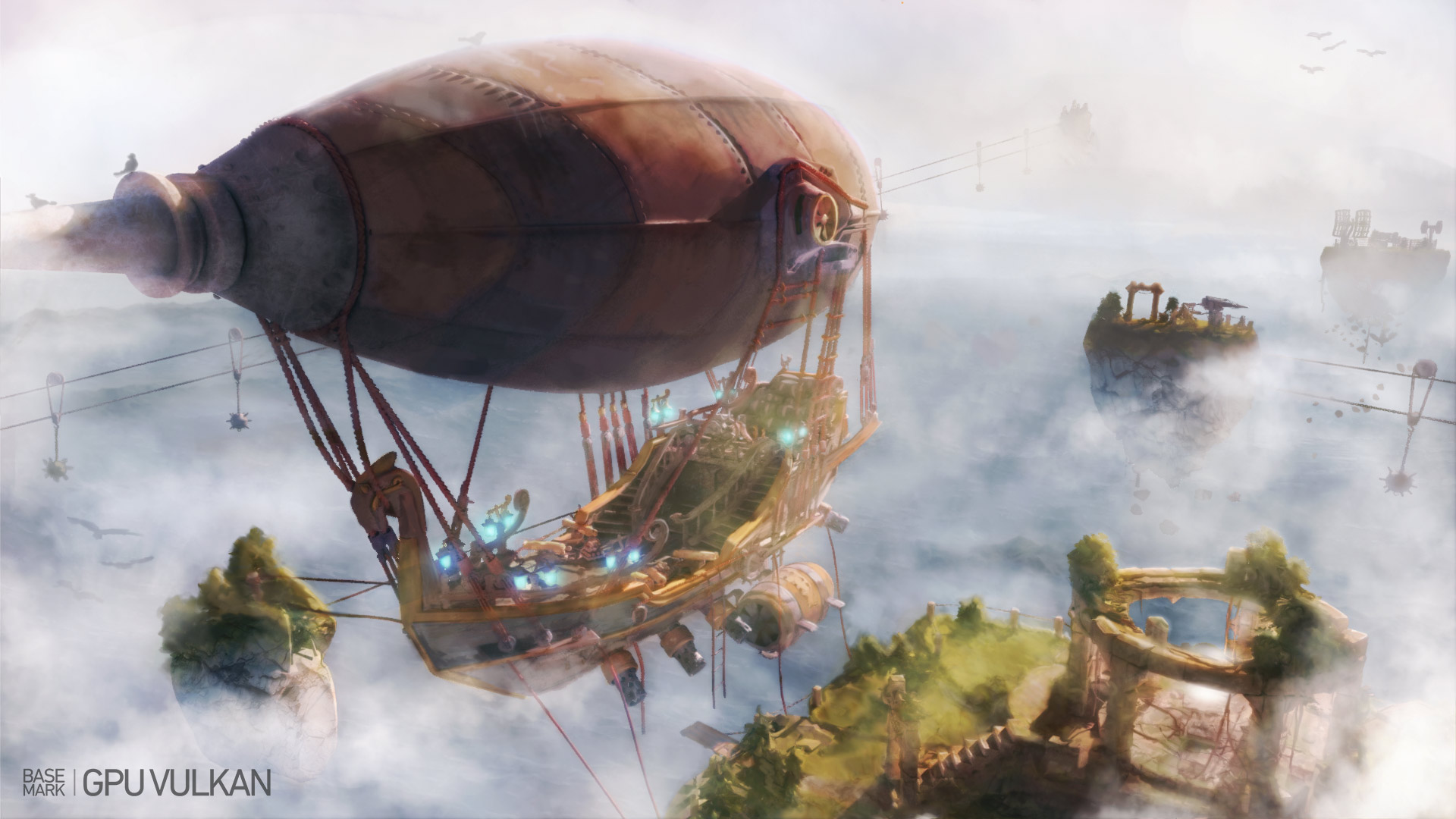Basemark Baking Vulkan-Based Benchmark Ahead Of VR Wave
In a few months time, Basemark will have its Vulkan benchmark ready for us to enjoy.
It's been a bit silent over the last few months with regard to the new graphics APIs, but Basemark is here today to remind us that they haven't been forgotten. The Finnish company has been working hard to build a new benchmark suite specifically for Khronos' upcoming Vulkan API.
The Vulkan API follows the trend that AMD's Mantle API started. It is being crafted to address the massive overhead that higher-level APIs face on GPUs, thereby offering much better performance. While on current GPUs, for gaming purposes at 1080p there isn't a particularly urgent call for more power, the moment that VR strikes, we'll need much more GPU power in order to ensure smooth performance. One solution is to make bigger and faster GPUs, but another solution is to make GPUs work smarter. That's what APIs such as Mantle, DirectX 12, and Vulkan are designed to do.
Details on the new Benchmark are scarce. It is called Basemark GPU Vulkan, and according to Basemark, it's been developed closely with the GPU manufacturers, ranging from the desktop-oriented AMD and Nvidia to mobile-focused Qualcomm, and more.
Basemark's philosophy with this benchmark is that, "Our customers require relevant Vulkan API performance tests as opposed to theoretical workloads," according to the company's CEO, Tero Sarkkinen. The idea there is that the benchmark will give users a good impression of what actual in-game performance would be like.
At this time, Basemark expects to have the benchmark available in Q2 2016 for both desktop and mobile platforms. It's a bit of a ways out, but it looks like 2016 will be an exciting year for PC graphics and VR.
______________________________________________________________________
Niels Broekhuijsen has been with Tom's Hardware since 2012, and works as a Contributing Editor on the news team. He covers mostly hardware, components, and anything else that strikes his fancy. Outside of work, he likes to travel, cook, and fix things that are broken.
Get Tom's Hardware's best news and in-depth reviews, straight to your inbox.
You can follow him at @NBroekhuijsen. Follow us on Facebook, Google+, RSS, Twitter and YouTube.
Niels Broekhuijsen is a Contributing Writer for Tom's Hardware US. He reviews cases, water cooling and pc builds.
-
pasow if Vulkan proves performant, it really should become the dominant API instead of DX12 for game development simply because it wont be restricted to Win10 and Xbone. porting games to other Operating Systems and counsels would be far simpler and more likely. not to mention the possibility of DX12 like performance gains under Win7 and Win8.x.Reply -
Alec Mowat Replyif Vulkan proves performant, it really should become the dominant API instead of DX12 for game development simply because it wont be restricted to Win10 and Xbone. porting games to other Operating Systems and counsels would be far simpler and more likely. not to mention the possibility of DX12 like performance gains under Win7 and Win8.x.
Vulkan is a none-profit API, DX12 is backed by billions of dollars. People are not going to migrate away from Microsoft, because it provides a stable level of support and development. It's cool there is some competition, but people stick with Microsoft. You get warranty, you get support. -
Haravikk Replyif Vulkan proves performant, it really should become the dominant API instead of DX12 for game development simply because it wont be restricted to Win10 and Xbone. porting games to other Operating Systems and counsels would be far simpler and more likely. not to mention the possibility of DX12 like performance gains under Win7 and Win8.x.
Vulkan is just a new name for OpenGL, which has always been just as open and accessible as Vulkan will be, yet OpenGL never saw majority usage either.
There are a few reasons for this, including some dick moves by Microsoft that meant that OpenGL on Windows often ran poorly without extra work by developers. OpenGL also hasn't been at the forefront of new features for a while, essentially just implementing whatever DirectX does instead, largely thanks to big OpenGL members like CAD studios that don't like things to change (else OpenGL may have become something like Vulkan a long time ago).
I mean, we can hope that with the increase (however modest) in Linux compatible titles that we might see more games favouring the more open API, as it eliminates some of the work involved in porting, but that's still gathering momentum (and we don't yet know if it's a trend that will continue).
There are other issues too, like support on Mac; there are still more titles for Mac than for Linux, and while OS X's main graphics API has been OpenGL, Apple has been pretty lax in updating it, in favour of adding their own proprietary Metal API in the latest OS update. Now, ideally Metal should start to disappear, like AMD's Mantle, but I think the latter was always intended more to drive progress rather than to be used long-term (since it's in AMD's best interests to eliminate CPU overhead). In Metal's case it's not clear if Apple will drop it or not, as while switching to Vulkan makes sense for developers due to ease of porting, it's in Apple's best interests to lock them into their platforms, so it's possible Apple won't add Vulkan support at all, even though PowerVR GPUs already support it. -
Ben_36 Vulkan is derived from and built upon components of AMD's Mantle. It comes from the Khronos group but it is NOT just an update to OpenGL.Reply
"Vulkan is a none-profit API, DX12 is backed by billions of dollars"........... Vulkan is made by the Khronos consortium comprised of corporations the likes of EA, IBM, Canonical, Nintendo, Valve, Google... the list is immense. All of them are corporations that are actively developing Vulkan (aka. pouring money into it).


